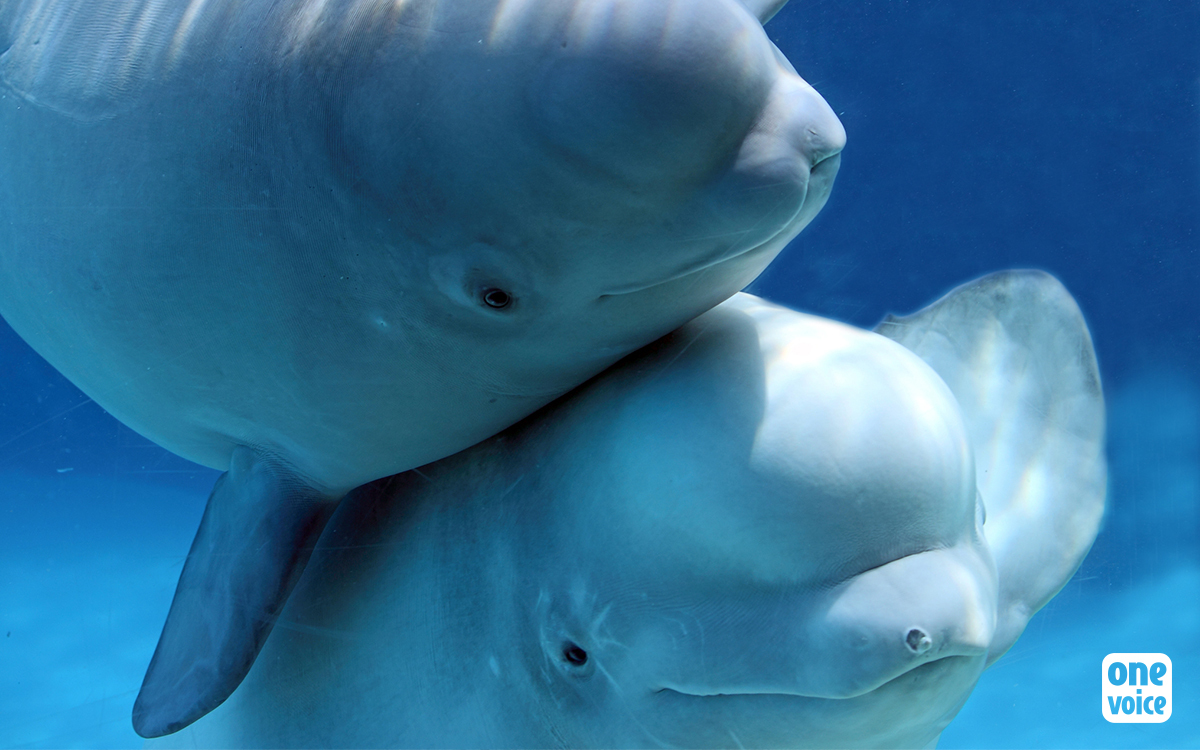

Trafficking of Beluga Whales and juvenile Orca Whales discovered in Russia
11 orcas and 90 belugas were huddled together in floating pens at the bottom of a bay in the Okhotsk Sea, between Sakhalin and Kamchatka … A crane lifts one of the orcas into the sky which is bound for China … These terrible images relayed by the international press show us how much this industry of captivity has become a goose with golden egg under the reign of Vladimir Putin. We cannot let the Russian government sell orcas and belugas to the 72 giant dolphinariums that will soon be all over China! Along with us, call the authorities responsible for this crime against wild life!
Following the international scandal that followed the discovery of this detention of cetaceans, Russia has just announced the ban on the capture of orcas and belugas from 2019. It is a beautiful victory! Let us fight for the release of these individuals held in the floating prison of the Russian Far East.
Today, the fate of 25 of these small beluga whales is still pending because they are less than a year old and should never have been captured under Russian law. As for the orcas, whose price may exceed one million dollars per individual, their sale abroad is also assumed to be prohibited: only catches intended for the domestic market, in the name of research and pedagogy remain authorized.
The four companies that manage this regrouping camp in the Russian Far East are already being investigated for previous sales of cetaceans to Chinese customers. But some companies seem too close to power to be concerned, according to the Russian media that accompanied the commission of experts who were dispatched to the scene by the prosecutor’s office in Vladivostok.
They discover an astonishing spectacle: in the lost bay of Srednyaja covered by the fog, dozens of enclosures lined up along the pier. Orcas move into the shade of the awnings that cover their floating cages, eleven juveniles are divided into groups of three or four. All were caught near the Chantar Islands during the summer. The population of these seal hunting orcas is now reduced to less than 300 individuals. Their food culture is totally carnivorous, so it is necessary to rehabilitate the captives so that they agree to swallow dead fish. In Shanghai, four killer whales captured in the same sea of Okhotsk have already started their shows under the applause of an enthusiastic crowd.
In the open-air enclosures for belugas, the stunned inspectors see sparrows flocking around them, dozens of juvenile belugas still with their infantile grey skin. Their toothless mouth opens miserably to beg for food. A single enclosure keeps up to thirteen of these unfortunate infants with very young faces. One of them starts spitting water awkwardly, a trick learned to amuse the visitors. Further away, a non-weaned beluga, quite tiny, waits alone in a transport container. What will become of all these little ones? Can we ever bring them back to their homes?
As in a nightmarish loop, the commercial success of dolphinariums that we suffered from the 1960s is repeated here in Asia. Dolphins savagely captured and stored in floating pens in Florida before sale, tiny ponds, early deaths, vulgar and noisy shows, etc. All these cruel practices that our marine parks try to forget, suddenly resurface in the face of the world. The only glimmer of hope for Russian orcas and whales is the handful of brave scientists and activists who are struggling tirelessly and not without risk to save the wildlife of their beautiful country.
Let’s help them!
Write to the Russian ambassador asking that his country stop the trafficking of orcas and belugas to China!
For the attention of his excellency Mr. Mechkov,
Ambassador of the Russian Federation to France
40-50 Boulevard Lannes
75116 Paris
Twitter @ambruspresse
Facebook : www.facebook.com/ambassadeRussieFrance
Pictures: ©Serena Livingston/Dreamstime.com